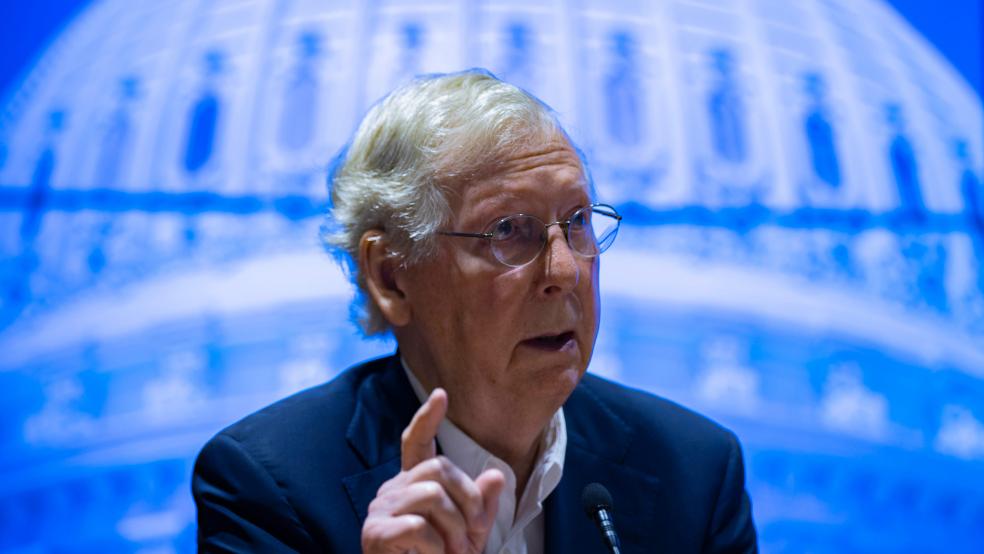Just how serious is President Joe Biden about trying to reach in infrastructure deal with Republicans?
Politico this morning called that “the D.C. guessing game du jour,” and anyone playing along should get plenty more evidence to dissect and soundbites to interpret this week. Biden was set to meet with Sens. Joe Manchin (D-WV) and Tom Carper (D-DE) on Monday afternoon and evening and then host an Oval Office discussion on infrastructure and spending with the four congressional leaders on Wednesday.
Biden is also scheduled the meet with six Senate Republicans on Thursday to discuss the infrastructure plan.
As the White House searches for some bipartisan consensus, Biden’s meetings with GOP members will reportedly focus on physical infrastructure such as roads and bridges, as Democrats don’t expect any Republican cooperation on Biden’s proposed safety net spending.
“Should negotiations move forward, the remaining priorities within Biden’s roughly $4 trillion spending plans that are not included in a bipartisan compromise — from funding for home health care to expanded childhood education, family tax credits and increased taxes on those earning more than $400,000 — would likely be pushed through a separate budget reconciliation bill with only Democratic support,” Politico reports.
Democrats will need to have Manchin, in particular, on board with any plan they want to pass through the 50—50 Senate using a maneuver called budget reconciliation, which would allow them to bypass the threat of a Republican filibuster. Manchin has expressed concern about the amount of spending Biden has proposed and has said he prefers a 25% corporate tax rate to the president’s proposed 28% rate.
McConnell sets a marker: Senate Minority Leader Mitch McConnell on Sunday told Kentucky PBS station KET that the “proper price tag” for an infrastructure package would be about $600 billion to $800 billion, far shy of the nearly $2.3 trillion Biden has proposed in his plan. And McConnell again criticized the president’s proposal for including items that Republicans say aren’t related to infrastructure.
Republican Sen. Shelley Moore Capito of West Virginia has proposed a $568 billion package, including existing spending plans, but she told NBC News on Friday that the plan “is not our final offer.”
The size and scope of the package aren’t the only obstacles, though: Even if the two sides can settle on the contours of a physical infrastructure package, they continue to have fundamental differences on how to pay for it. The White House has proposed corporate tax increases, while Republicans insist they won’t roll back their 2017 tax reform and want user fees to pay for new spending.
The White House so far isn’t drawing many public red lines on the package, though. “The president’s red lines are inaction and are anything that would raise taxes on people making less than $400,000 a year,” White House Press Secretary Jen Psaki said.
Biden appeared to draw another red line last week, saying he was “not willing to deficit spend” to pay for an infrastructure plan. “I’m willing to compromise but I’m not willing to not pay for what we’re talking about,” Biden said last week, adding that the Republican tax cuts “already have us $2 trillion in the hole.”
But the White House’s flexibility in talks reportedly may extend to the idea of additional deficit spending anyway. “Lawmakers and other stakeholders who have recently met either with the president or top members of his team say the White House is more focused on getting Biden’s priorities into a legislative package than drawing a hard line on deficit spending,” Politico notes.
The bottom line: The meetings this week may go a long way toward determining how much room the two parties have to try to work out a deal as Democrats looks to make bipartisan progress by Memorial Day — and prepare to go it alone if they don’t see that progress being made.





